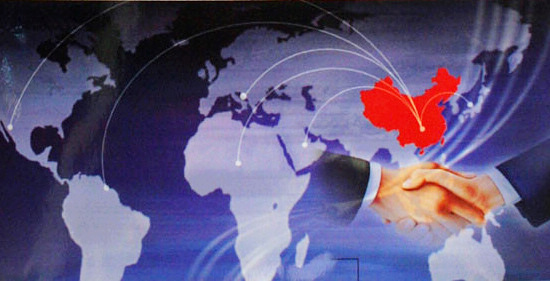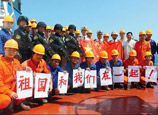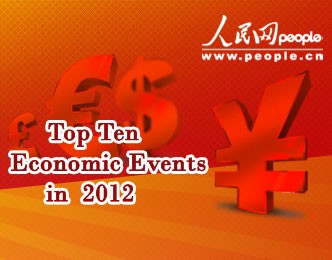

China's exports have brought substantial benefits to the world. (File Photo)
Stabilizer of Global Economy
China, the world's largest exporter and second largest importer, has served as a major stabilizer of the global economy, with its rate of contribution to the world economic growth reaching 25 percent in 2010, based on the World Bank data.
China has become the world's largest exporter since 2009, with its total export value increasing nearly five times from 2002 to 2011, accounting for 10 percent of the total global exports in 2011.
China's growing exports has sent its trading partners growing.
According to statistics from the Netherlands, in 2007, Rotterdam became the first port city to break the threshold capacity of 400 million tons in Europe, with its capacity reaching 460 million tons, thanks largely to the local market's huge demand for Chinese goods.
"When supply and demand are considered, 'demand' is not just what people want, but what people want and can afford to acquire. Chinese goods impart high value at low price," John Duggan, a long-time China watcher and established American attorney, said to this journalist.
"All of a sudden, you realized that, oh, shoot, everything with good quality comes from China," Evander Holyfield, an American celebrity who grew up surrounded by Chinese goods, said to this journalist. "People love to get thing from China, because it's cheaper and with quality."
China's exported goods has brought substantial benefits to the world and improved the purchasing power of consumers in various countries.
According to China's official statistics, imports from China had saved American consumers more than $600 billion from 2001 to 2010, which had helped boost economic growth and lower inflation in the United States.
China's exported products also enable each European family to save €300 every year and help reduce the cost of raw materials for European manufacturing enterprises.
Based on a Morgan Stanley's research report, in 2009 alone, approximately $100 billion in US consumer spending was saved by "Chinese imports".
According to official statistics, from 2000 to 2011, China's rate of contribution to the global exports growth was about 14 percent, 2.4 times higher than the 5.9 percent of the United States.
The large volume of China's exports, in turn, triggered the dramatic increase of China's imports. From 2002 to 2011, China's imports realized an average annual increase of 21.6 percent and have ranked the second in the world since 2009.
The new trading power's rate of contribution to the global imports growth reached 13 percent from 2000 to 2011, 1.5 times higher than the 8.6 percent of the United States.
With an average annual import of $750 billion, equivalent to creating about 14 million jobs for its trading partners, China's huge, fast-expanding imports greatly facilitated the growth of global trade, especially after the 2008 financial crisis when China emerged as the major force in stimulating global economic growth and recovery.
Since the global financial crisis that first erupted in the United States, Europe has remained stuck in a severe debt crisis. During Chinese Premier Wen Jiabao's visit to the debt-laden Europe in June 2011, China and Germany signed a raft of trade deals worth an estimated $15 billion. Premier Wen even proclaimed that China might increase support to Europe by buying the sovereign bonds of certain eurozone countries when necessary.
Moreover, the world's most populous nation's strong domestic demand and growing affluence makes the country a lucrative, even essential market for major economies.
When North America, the epicenter of the global financial crisis, was enveloped in the shadow of unemployment and bankruptcy in the 2010 Spring Festival, the historically largest Chinese tour groups came to New York and injected a breeze of fresh air into the stagnant financial centre. Over 1,000 Chinese mainland tourists bought a total of $30 million worth of Western luxury goods in that city.
To welcome the consumers from the rising Asian power, Cartier, one of the world's top jewelers and luxury watchmakers, posted up in its New York stores the red Chinese blessing figures, while Macy's, another renowned luxury brands, arranged a number of Chinese lion dances.
Chinese buyers were regarded as the stimulant to boost the local economy and a source of warmth during the severe financial winter.
"The growing Chinese consumption has made tangible contributions to the world economy and played an active role in stabilizing it," said Ms. Shi.
"China is transforming its export-oriented growth model and turning itself into a consumption-oriented economy, which, in the post-crisis era, would have a positive spillover effect upon other global economies."♦
Read on: Investing in China: Harvest Time
Li Zhenyu authors the "Golden Decade" column for People's Daily Online.















 Black-headed gulls come to Kunming for winter
Black-headed gulls come to Kunming for winter


![]()
